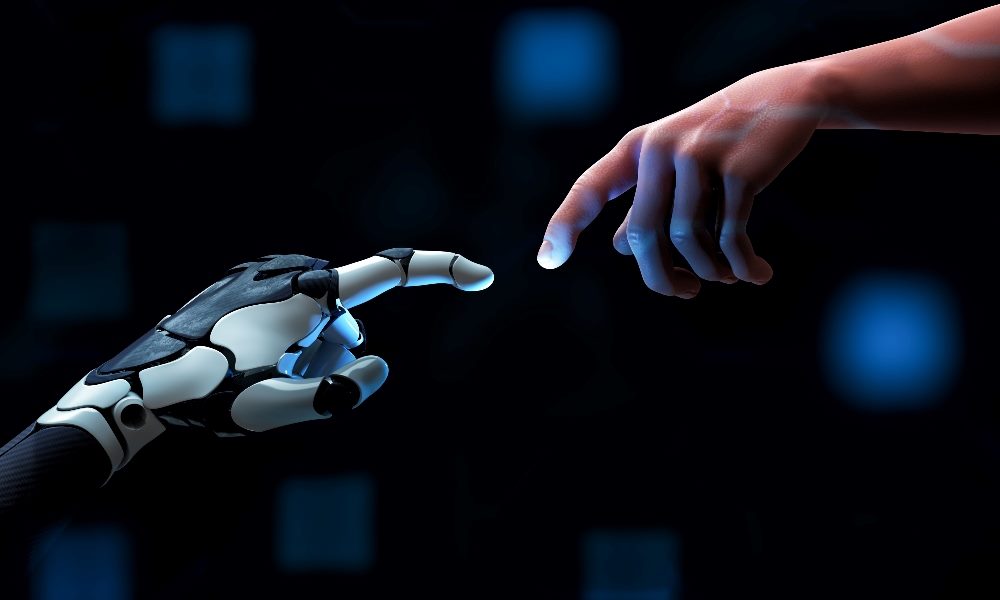The Gist
- Key insight. AI customer experience enhances efficiency but can't replace human personalization.
- Vital balance. Efficiency and personalization must coexist for AI to be effective in customer service.
- Ethical caution. Human biases in AI could lead to discriminatory outcomes in customer experience.
This year, artificial intelligence entered the cultural zeitgeist, so it’s hard to envisage a world in which we don’t discuss its impact on customer experience. There is no question that automation can improve efficiencies and, therefore, enhance the customer experience. On the other hand, AI customer experience can lack the necessary personalization element, creating risks when heavily relied upon or not used effectively.
Let's take a look at both advantages and drawbacks of today’s rapidly evolving technological landscape when it comes to better serving customers.
AI Customer Experience Has a Role to Play but Only if Its Limitations Are Well Understood
AI platforms such as ChatGPT can serve as a valuable starting point to spark ideas and get the ball rolling. One example of AI’s relevance is when it comes to AI in marketing copy where a first draft can be easily created and then enriched with human editing and personalization. This combination not only saves time but also allows for creative thought processes that add the human touch essential for impactful customer experiences.

When it comes to understanding human motivations and experiences, AI customer experience falls short. While it can aid in various tasks, such as follow-ups, scheduling and reporting, it should not be blindly relied upon without greater context and oversight provided. It may be able to automate tasks and save a lot of time in the process, but it cannot replace the human element that is crucial to building meaningful connections with customers.
The Balance Between Efficiency and Personalization
I will give you just one of many examples from my world — executive search — where AI can be used to save time but connecting with individuals on an emotional level remains crucial. At the beginning of a search, automation can help with outreach to potential candidates. It can drive that process forward and take some of the burden off people when volume and repetition make up a large part of the day.
Once you start with phone calls, automation tools can again help with transcribing conversations and AI can summarize notes. ChatGPT, for example, can summarize a person’s career experience from a quick copy and paste of their LinkedIn profile. Once someone knows how to use AI well, they can be highly directive with the outputs saving themselves even more time.
But if we were to over-rely on this technology, the average professional would know within the first two sentences that it’s produced by AI. It may accurately summarize a person’s career journey to date, but it can’t determine the impact they made during each role, the motivations for moving from one job to the next, understand the capabilities they have built and the lessons they learned. This part cannot be replaced with AI. You have to connect on a human level to understand this about your candidates. As search processes evolve, understanding motivations and career objectives is critical to presenting not only the most qualified talent but also candidates who possess the best overall fit to the client’s needs.
Related Article: Customer Experience Automation and the Human Touch
Consider the Inherited Human Biases
Despite its benefits, AI customer experience is not without risks, particularly concerning biases. AI models developed by humans can inherit these biases, leading to discriminatory outcomes in processes like resume screening. Caution must be exercised to use AI responsibly and fairly. While we are only at the tip of the iceberg of what AI can do, the consensus remains that human interactions and emotional depth are irreplaceable when it comes to truly understanding customer motivations and expectations.
Throughout the customer experience cycle, there is no doubt that AI can provide efficiencies and speed up processes that would historically frustrate consumers and could make or break brand loyalty over time. AI customer experience can take companies a long way when it comes to addressing customer needs for speed and responsiveness.
Related Article: Addressing AI Bias: A Proposed 8th Principle for 'Privacy by Design'
Final Thoughts on AI Customer Experience & the Human Touch
By automating processes, AI provides a unique opportunity for customer experience leaders to win back added time in which they can focus solely on the human element necessary to optimize customer satisfaction, loyalty and engagement. This previously untapped potential can enhance human creativity and provide the space to deepen customer relationships.
While AI customer experience can be used as a tool powerful enough to significantly improve efficiencies, it cannot override the human experience.
Learn how you can join our contributor community.

